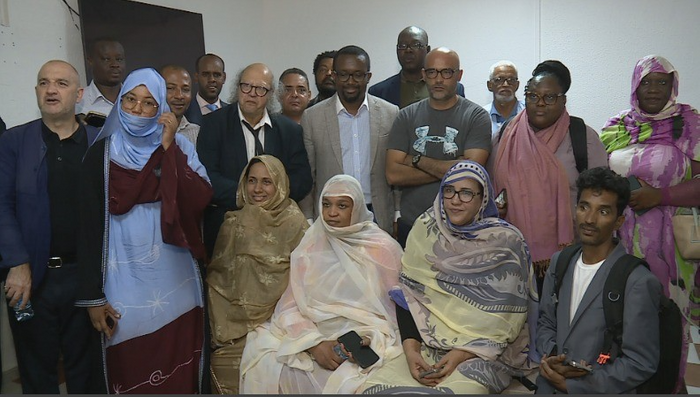Mauritania: nearly 2,000 workers secure contracts at public media institutions
The NUJ has joined the International Federation of Journalists (IFJ) in welcoming the Mauritanian government's decision to regularise 1,860 public service media workers as a historic trade union victory.
For over three decades workers at the Mauritanian Broadcasting Company, Mauritanian News Agency, Mauritanian Radio, and Television of Mauritania struggled for professional and social recognition. Last year the IFJ and Federation of African Journalists (FAJ) joined Mauritanian broadcast journalists in Nouakchott to launch a renewed campaign.
On 24 October the Association of Mauritanian Journalists (AJM) organised a ceremony in Nouakchott to celebrate the decision with El Houssein Ould Meddou, Mauritania culture minister, describing the decision as “official recognition of the essential role played by journalists in the construction of the national media landscape and a major step forward for the principle of equal opportunities."
The new agreement grants journalists permanent contracts under the collective labour agreement and ensures equal pay and benefits with their colleagues, full medical coverage for themselves and their families, paid annual leave, and retirement benefits from age 63.

IFJ and FAJ leaders at the launch of their campaign in Nouakchott in 2024
Moussa Ould Behly, AJM president, said:
"This is the end of the precariousness experienced by employees for decades and it is a source of pride for AJM, for the profession and for the country. I welcome the close collaboration between the journalists, the AJM and the authorities, and I express my gratitude to the IFJ for its constant support from the beginning."
Anthony Bellanger, IFJ general secretary, said:
"This regularisation is a total victory for the profession. It recognises the work, dignity and fundamental right to decent work for those who inform the Mauritanian people. This is not just a national reform: it is a message to all of Africa and the world - that of a country that places truth, social justice and freedom of information at the heart of its social project. By respecting its journalists, Mauritania strengthens its democracy, stability and sovereignty. I can say that this regularisation of 1,860 media workers is one of the greatest victories of the IFJ since its creation in 1926.
“Mauritania has just offered the world a lesson in hope and responsibility. It proves that it is possible to combine reform, social dialogue and freedom of the press.”
